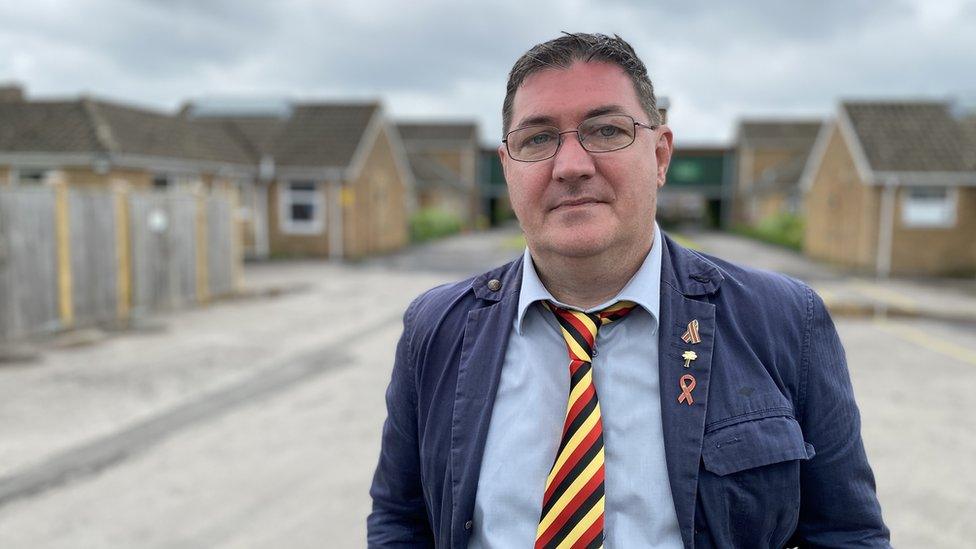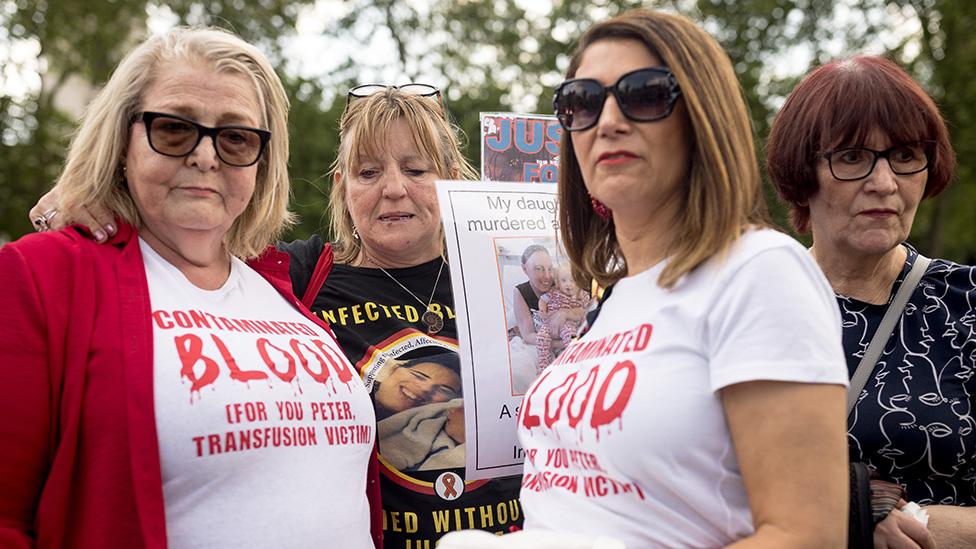Infected Blood Inquiry: Hampshire school pupils' 'rage' over HIV diagnoses
- Published
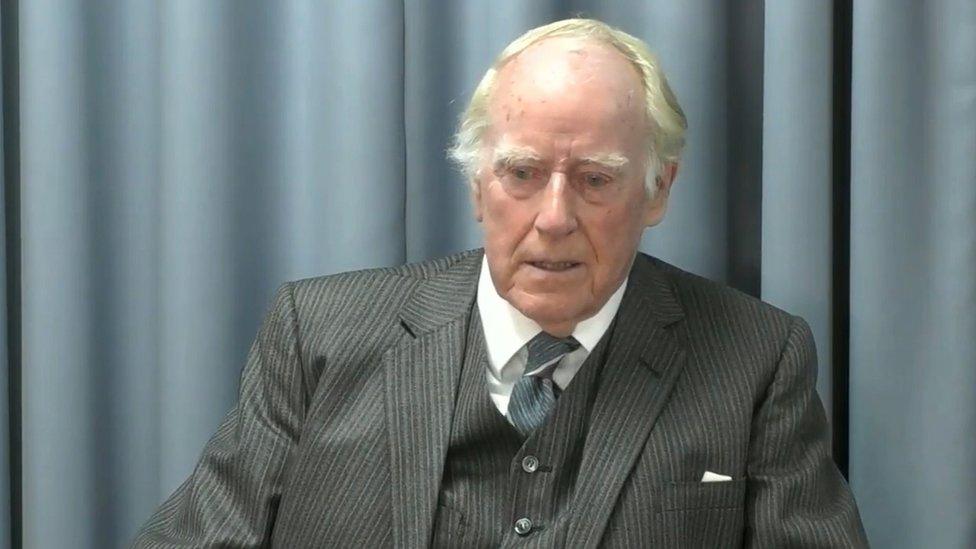
Former headmaster Alec Macpherson said staff "did as much as they could" to help infected pupils
A school did its best to help boys with their "rage and frustration" after they got HIV through contaminated blood, a public inquiry has heard.
At least 72 pupils died after being treated at Lord Mayor Treloar College in Hampshire in the 1970s and 1980s.
Former headmaster Alex Macpherson told the Infected Blood Inquiry the revelation of the boys' HIV positive status "had a dreadful effect on them".
He said: "They were going to die and that was it. You just had to help."
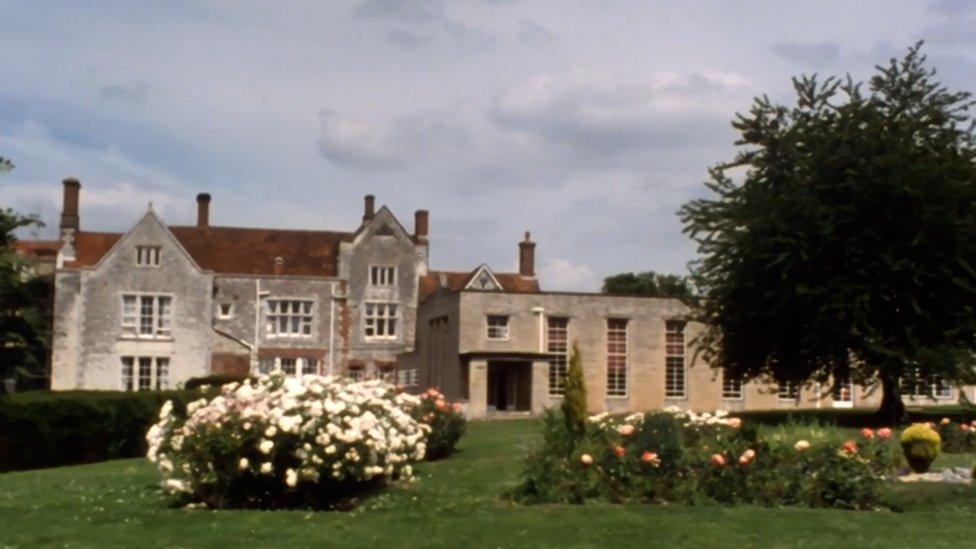
The school - now renamed Treloar's College - had a specialist haemophilia centre on site
The boarding school, at Holybourne near Alton, catered for haemophiliac children via a specialist NHS centre on site.
From 1974 to 1987 boys were given the factor VIII clotting agent, which was often imported from overseas.
Batches were widely contaminated with hepatitis A, B, C and later HIV, infecting thousands of haemophiliacs across the UK.
Mr Macpherson, who was the headmaster from 1974 to 1990, said infected pupils were offered counselling and distractions.
He told the inquiry: "What they had was a rage inside them, a frustration, that suddenly they had been made ill and they were going to die in the not-too-distant future.
"You could see it when you talked to them... It was a result of this disease. It had a dreadful effect on them."
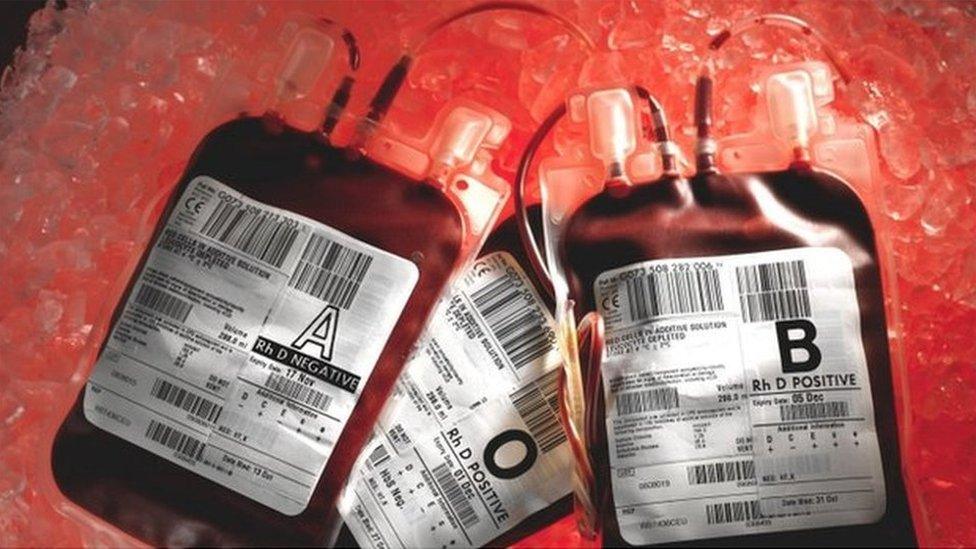
Up to 30,000 people were given contaminated blood in the UK
Inquiry lead counsel Jenni Richards QC said some pupils were not properly informed of their HIV status.
She said "There are witnesses who recall being told in a group with other pupils... 'You have it, you don't, you have it, you don't'.
"We've heard evidence this week which suggests that some pupils may not have been told at all."
Medical records seen by the inquiry earlier this week showed the school's NHS centre began to monitor pupils for HIV as early as 1983.
Mr Macpherson said: "If they didn't take immediate action when they knew that infected blood was being used, I'm very surprised.
"I think that was remiss, that was a mistake, which I would say was culpable. If that is true, that's disgraceful."
The public inquiry is due to resume in July.
- Published23 June 2021
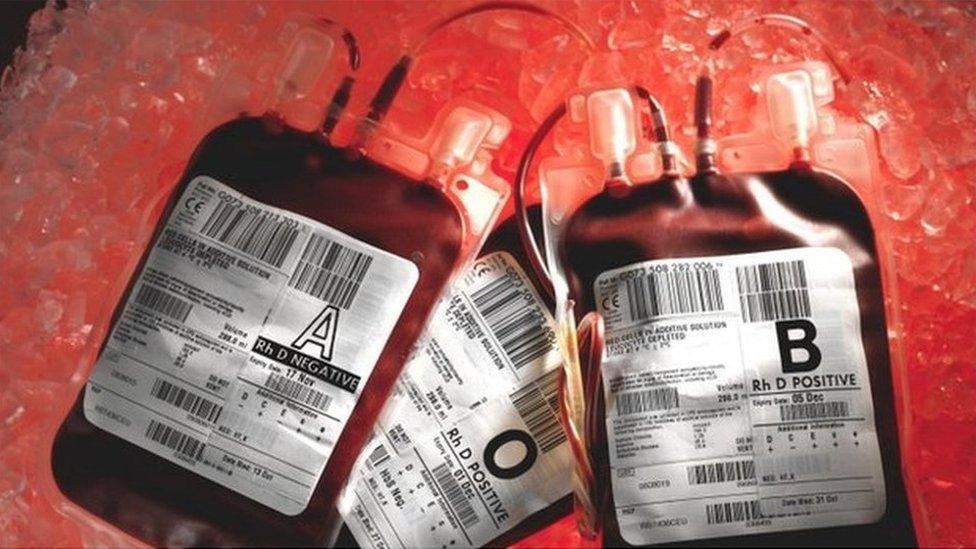
- Published21 June 2021
